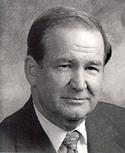Defense Secretary Chuck Hagel, a Vietnam war veteran and the lone Republican on Obama’s national security team, has been fired.
And John McCain’s assessment is dead on.
Hagel, he said, “was never really brought into that real tight circle inside the White House that makes all the decisions which has put us into the incredible debacle that we’re in today throughout the world.”
Undeniably, U.S. foreign policy is in a shambles. But what were the “decisions” that produced the “incredible debacle”?
Who made them? Who supported them?[amazon asin=0553418637&template=*lrc ad (right)]
The first would be George W. Bush’s decision to invade Iraq, a war for which Sens. John McCain, Joe Biden, John Kerry and Hillary Clinton all voted. At least Sen. Hagel admitted he made a mistake on that vote.
With our invasion, we dethroned Saddam and destroyed his Sunni Baathist regime. And today the Islamic State, a barbaric offshoot of al-Qaida, controls Mosul, Anbar and the Sunni third of Iraq.
Kurdistan is breaking away. And a Shia government in Baghdad, closely tied to Tehran and backed by murderous anti-American Shia militias, controls the rest. Terrorism is a daily occurrence.
Such is the condition of the nation which we were promised would become a model of democracy for the Middle East after a “cake-walk[amazon asin=0307405168&template=*lrc ad (right)] war.” The war lasted eight years for us, and now we are going back — to prevent a catastrophe.
A second decision came in 2011, when a rebellion arose against Bashar Assad in Syria, and we supported and aided the uprising. Assad must go, said Obama. McCain and the neocons agreed.
Now ISIS and al-Qaida are dominant from Aleppo to the Iraqi border with Assad barely holding the rest, while the rebels we urged to rise and overthrow the regime are routed or in retreat.
Had Assad fallen, had we bombed his army last year, as Obama, Kerry and McCain wanted to do, and brought down his regime, ISIS and al-Qaida might be in Damascus today. And America might be facing a decision either to invade or tolerate a terrorist regime in the [amazon asin=125000411X&template=*lrc ad (right)]heart of the Middle East.
Lest we forget, Vladimir Putin pulled our chestnuts out of the fire a year ago, with a brokered deal to rid Syria of chemical weapons.
The Turks, Saudis and Gulf Arabs who aided ISIS’ rise are having second thoughts, but sending no Saudi or Turkish troops to dislodge it.
So the clamor arises anew for U.S. “boots on the ground” to reunite the nations that the wars and revolutions we supported tore apart.
A third decision was the U.S.-NATO war on Col. Gadhafi’s Libya.
After deceiving the Russians by assuring them we wanted Security Council support for the use of air power simply to prevent a massacre in Benghazi, we bombed for half a year, and brought down Gadhafi.
Now we have on the south shore of the Mediterranean a huge failed state and strategic base camp for Islamists and terrorists who are [amazon asin=0312374364&template=*lrc ad (right)]spreading their poison into sub-Sahara Africa.
The great triumphs of Reagan and Bush 41 were converting Russia into a partner, and presiding over the liberation of Eastern Europe and the dissolution of the old Soviet Union into 15 independent nations.
Unfulfilled by such a victory for peace and freedom, unwilling to go home when our war, the Cold War, was over, Bush 43 decided to bring the entire Warsaw Pact, three Baltic states, and Moldova, Ukraine and Georgia into NATO. For this project, Bush had the enthusiastic support of McCain, the neocons and the liberal interventionists.
Since 1991, we sought to cut the Russians out of the oil and gas of the Caspian basin with a pipeline through the Caucasus to Turkey, bombed Serbia to tear off its cradle province of Kosovo, and engineered color-coded revolutions in Belgrade, Tbilisi and other capitals to pull these new nations out of Russia’s sphere of influence.
Victoria Nuland of State and McCain popped up in Maidan Square in Kiev, backing demonstrations to bring down the democratically elected (if, admittedly, incompetent) regime in Ukraine.
The U.S.-backed coup succeeded. President Viktor Yanukovych fled, a pro-Western regime was installed, and a pro-Western president elected.
 Having taken all this from his partner, Putin retrieved the Crimea and Russia’s Black Sea naval base at Sebastopol. When pro-Russia Ukrainians rose against the beneficiaries of the coup in Kiev, he backed his team, as we backed ours.
Having taken all this from his partner, Putin retrieved the Crimea and Russia’s Black Sea naval base at Sebastopol. When pro-Russia Ukrainians rose against the beneficiaries of the coup in Kiev, he backed his team, as we backed ours.
Now, we are imposing sanctions, driving Russia further from the West and into a realliance with Beijing, with which Putin has completed two long-term deals for oil and gas running over $700 billion dollars.
As the U.S. and NATO send planes, ships and troops to show our seriousness in the Baltic and Ukraine, Russian planes and ships test Western defenses from Finland to Sweden to Portugal to Alaska and the coast of the continental United States.
Who made these decisions that created the debacle?
Was it those isolationists again?



